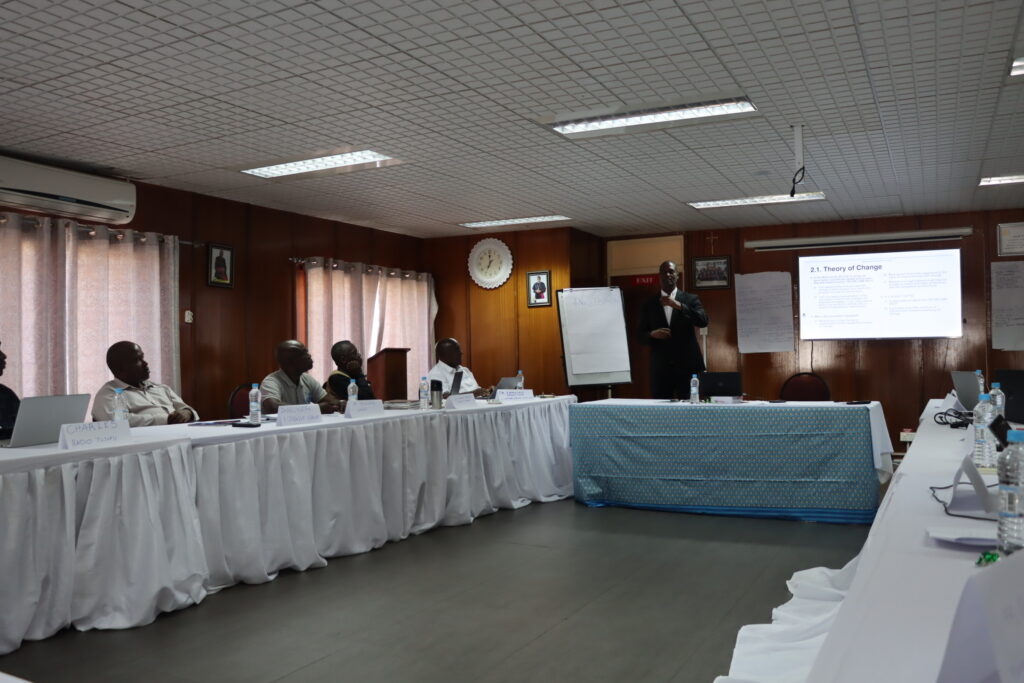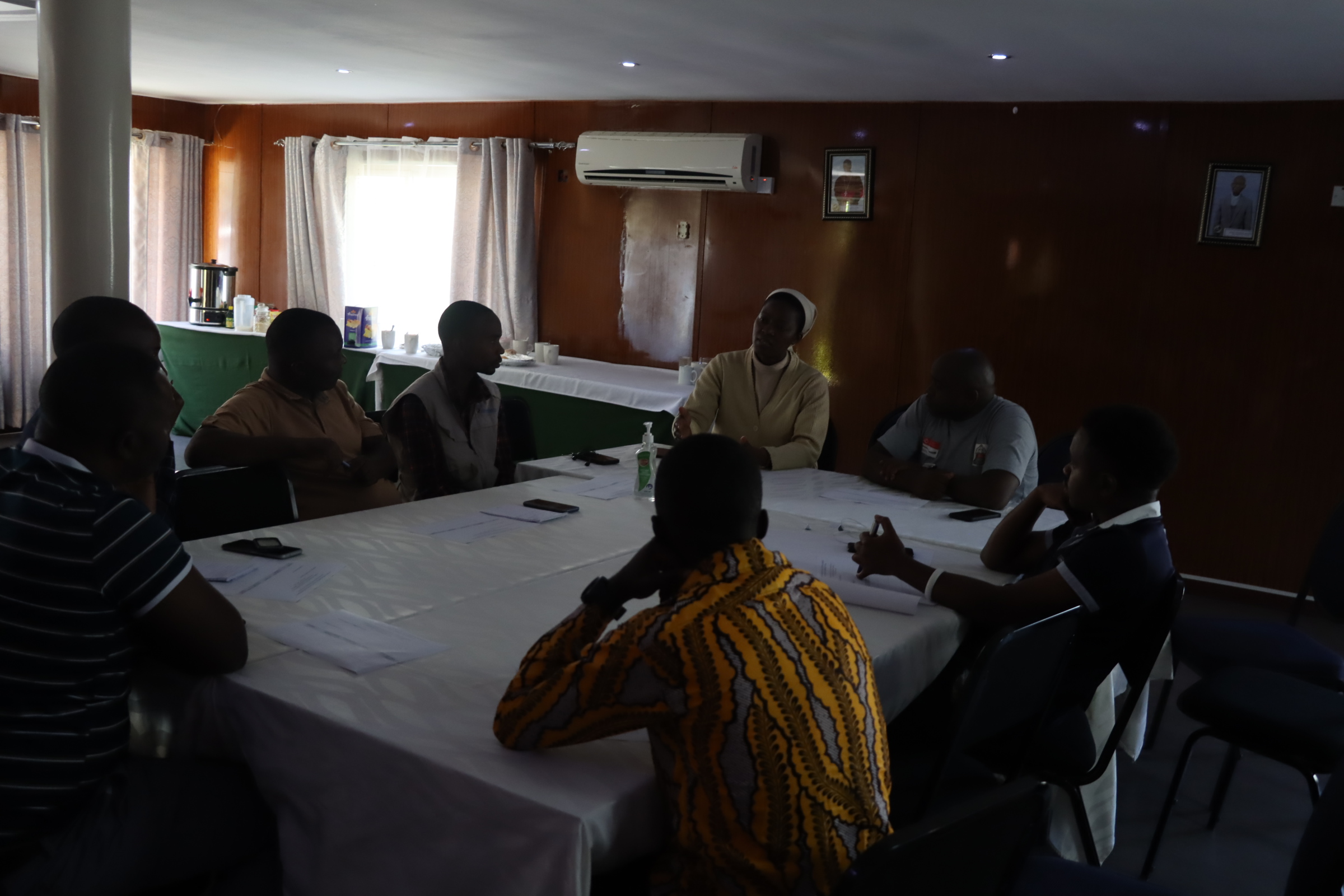AMECEA: Diocesan Communicators in Zambia Urged to Embrace Theory of Change

Fr. Andrew facilitating on theory of change
Sr. Jecinter Antoinette Okoth, FSSA
Communication coordinators from various dioceses in Zambia have been called upon to rethink their work and apply the theory of change so as to bring transformation in their respective departments in order to play a more effective role in the mission of the Church.
Addressing over twenty communicators who participated in the three-day workshop at Kapingila house, Lusaka, the Communications Coordinator for the Association of Member Episcopal Conferences in Eastern Africa (AMECEA) Fr. Andrew Kaufa highlighted that applying the theory of change will help to assess the current performance and identify better ways to address challenges affecting the Department of Communication and the Catholic media apostolates in the dioceses but also at the national level.
He reminded the participants that the new strategies expected at the end of the forum are expected to bring change and that they “must be a locally tailor-made technical solutions, informed by a clear understanding of the Strengths, Weaknesses, Opportunities and Threats (SWOT) analysis.”
According to Fr. Kaufa who was recently appointed by Pope Francis as a Consultant in the Vatican’s Dicastery of Communications, applying theory of change in any ministry other communications “explains how and why the desired change is likely to occur as a result of a program or a set of interventions.”

Besides, he continued, “Theory of Change is an explicit presentation of the assumptions about how changes are expected to happen in our organization, within any particular context, and in relation to a particular intervention.”
While addressing the participants, the member of the Missionaries of the Company of Mary (SMM) underscored that any human being or organization has the capability to adapt to change hence the need to “improve in order to match with signs of the times and the competitive environment.”
Even though the application of this model is expected to lead to change, Fr Kaufa noted that applying the theory can be challenging saying, “It can be challenging as it can be almost impossible to determine if change has occurred if you have not explicitly delineated the steps to change and if you have not measured it; additionally, the process can be time consuming.”
To realize change for improved performance and the growth of the Communication Department in the dioceses in Zambia, for instance, the AMECEA Communications Coordinator asked the National and Diocesan Communication Coordinators as well as the directors of the Catholic media houses to develop strategies that will move them towards the desired change including having a strategic plan for the Communication Department and resource mobilization.
The participants were also expected to come up with some specific, measurable, realistic and time-specific activities for implementation of the strategies, as well as to identify the responsible person for the realization and success of the planned activities.


